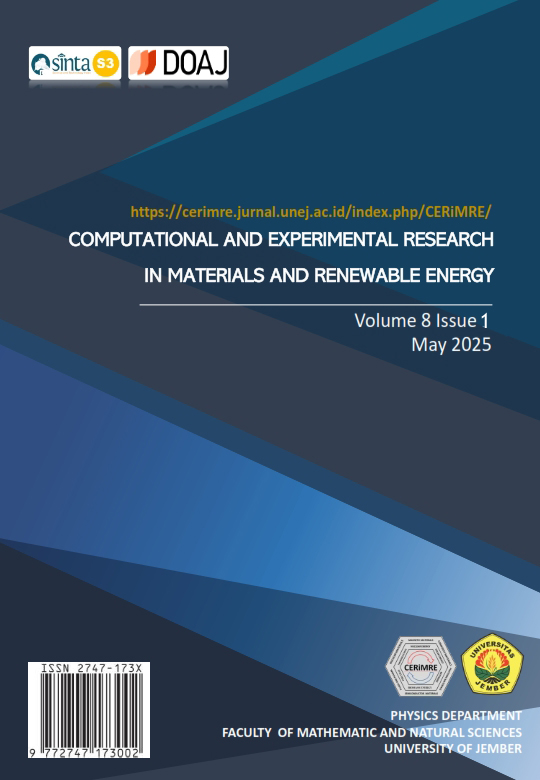Optimizing energy forecasts at Boma for 2023 to 2053 Using machine learning techniques of the PSO algorithm
DOI:
https://doi.org/10.19184/cerimre.v8i1.53686Keywords:
Optimization, energy forecasting, PSO algorithm, machine learning techniques, energy managementAbstract
This research was conducted to optimize energy consumption forecasting in the commune of Boma, in the Democratic Republic of Congo, in the face of persistent imbalances between energy production and demand. The main objective of the study was to assess local energy needs in order to support the economic and social development of the region. To achieve this objective, a methodology integrating quantitative and qualitative techniques was adopted. Data were collected through surveys conducted among residential, semi-industrial, and tertiary consumers, as well as demographic information provided by the town hall. In parallel, machine learning techniques were employed to predict energy consumption, with the Particle Swarm Optimization (PSO) algorithm used to optimize forecasts. The forecasting model was accompanied by statistical analyses, including the Pearson correlation coefficient and the Student t-test, to validate the results. The analysis revealed a very high correlation between actual and predicted values, with a coefficient reaching 0.999, which demonstrates high model accuracy. However, biases were observed, including a tendency to overestimate energy consumption, highlighting the importance of reliable data collection to improve forecast accuracy. In conclusion, the PSO algorithm has proven to be an effective tool for energy demand management, although adjustments are necessary to optimize the results. The lessons learned highlight the need for a thorough understanding of consumption behaviors and regular data updates to adapt forecasts to future developments.
Keywords: Optimization, energy forecasting, PSO algorithm, machine learning techniques, energy management









